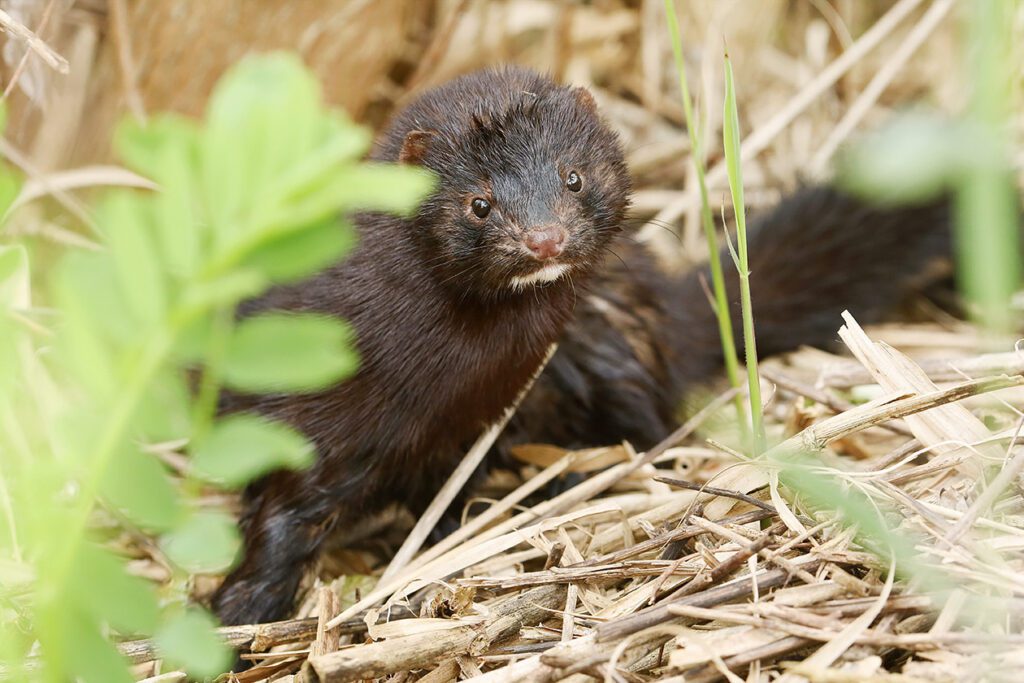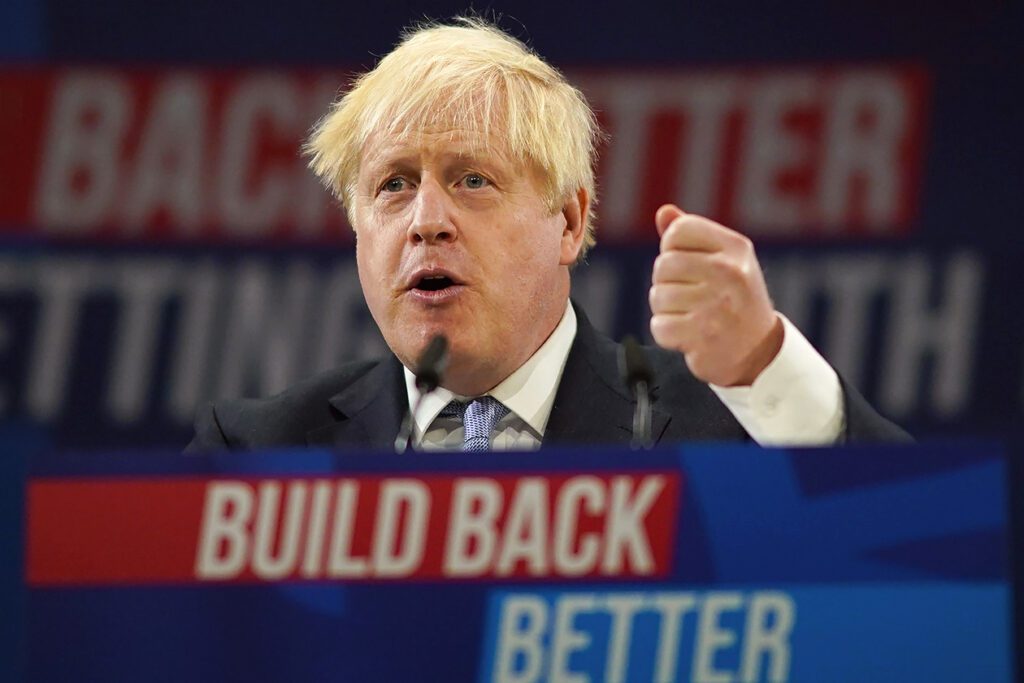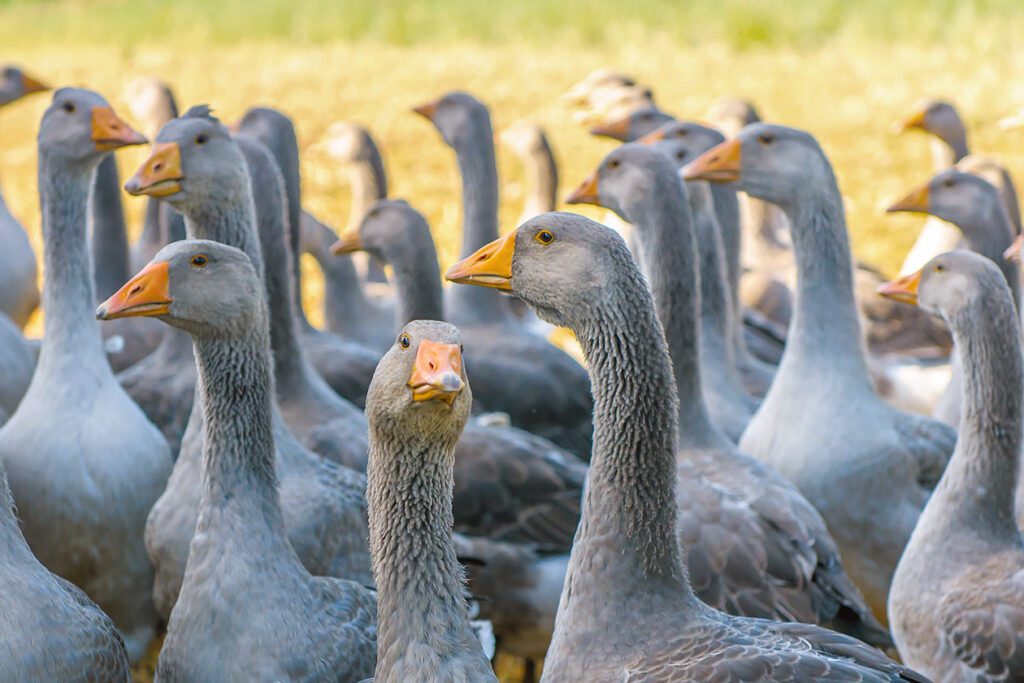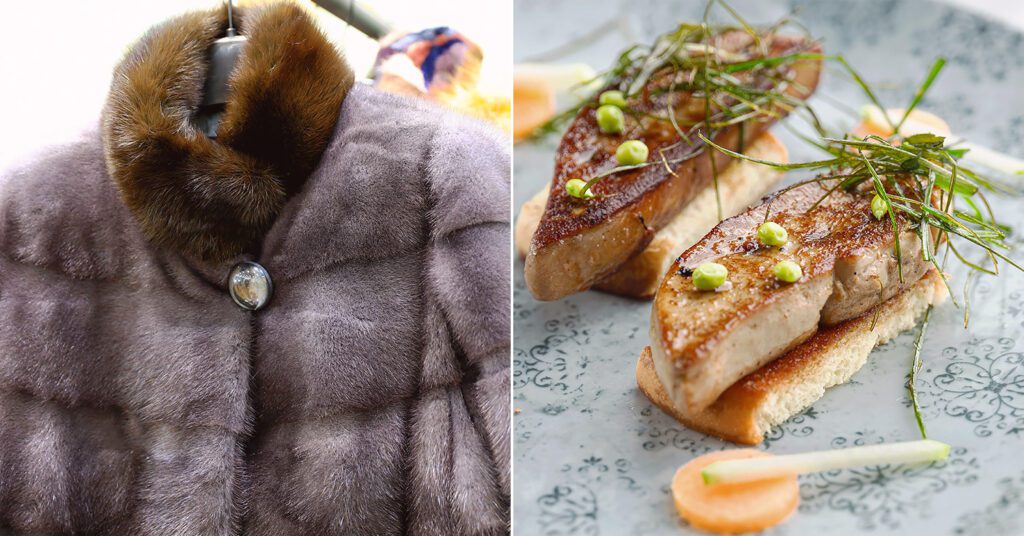The UK is set to u-turn on some of its key new animal welfare and environmental policies, including its proposed ban on foie gras and fur imports. These two industries are controversially cruel, destructive, and an unnecessary luxury. But, “flip-flopping” on divisive issues is something that Prime Minister Boris Johnson is notorious for.
Members of Parliament are yet to make a formal decision, but it seems likely that the expected bans on foie gras and fur imports will be parked in order to allow the long-awaited “Animals Abroad Bill” to proceed unopposed by other cabinet members. (Much like how in the US, Biden’s Build Back Better bill was repeatedly weakened and now, rebranded, to appeal to its opposers.)
The measures were first announced in May 2021 with much fanfare from the Department for Environment, Food & Rural Affairs (DEFRA). They were rightly hailed as huge progress for the UK, and particularly one led by a Conservative government. But now a vocal, but influential minority of the PM’s closest advisors, including Brexit opportunities minister Jacob Rees Mogg, now oppose the fur and foie gras bans.
The move is widely thought to be a tactical response to Johnson’s decreasing popularity. The government’s handling of both Brexit and the pandemic has been disastrous, and following several reports of the PM and the rest of his team breaking lockdown restrictions (currently under police investigation), Johnson’s rating is at an all-time low.
By scrapping some of the animal welfare policies that the party has used to court the center-left, such as the foie gras and fur bans, MPs loyal to Johnson hope to win back support for their floundering leader from the few hardline conservatives and ultra-wealthy backers still defending fur and foie gras despite their falling popularity.

Tories now set to scrap UK fur and foie gras bans
According to Humane Society International, 94 percent of the British population now avoids fur, the production of which involves toxic chemicals, increased risk of zoonotic diseases (including coronavirus), and shocking animal cruelty. Even the fashion industry is catching up, with countless mainstream brands vowing that they will ditch animal fur for good, motivated by sustainability and consumer demand.
Fur farming has been banned in England and Wales since 2000. But its distribution has thrived, so far, thanks to lax importation restrictions, serving as a passive endorsement of the practice. (Providing it doesn’t take place here, of course…)
While the data on foie gras consumption and popularity is a little hazy, its controversial production has been banned in more than a dozen countries, including Finland, Italy, Poland, and Turkey for animal welfare reasons. The so-called delicacy involves a process known as “gavage,” force-feeding live ducks and geese a high-fat diet in order to cause excessive swelling to their livers. It causes the animals extraordinary pain, all for the sake of a gourmet dish consumed by a very small number of people.
It was thanks to this relatively niche appeal of fur and foie gras that these issues were chosen for the Animals Abroad Bill, which was designed for maximum support and minimum controversy. Since then, they have rightly been some of the most talked-about jewels in the crown of the Conservative animal welfare plan, alongside a pledge to end live exports that has been well over 30 years in the making.
But the recent reaction of Johnson’s cabinet—and the government’s subsequent decision to scrap the measures in response—shows the superficial depth of the PM’s dedication to animal welfare and the environment. It also reveals the deep-seated need for the Conservative leader to please hardliners and ultra-rich backers if he wants to actually remain in power.
“How does the Prime Minister think it looks when we’re in a cost of living crisis […] when the members of his cabinet are throwing their toys out of the pram because they want to eat foie gras and wear fur,” asked Labour MP Kerry McCarthy when speaking to the House of Commons last week.

The UK needs to stop backpedaling on environmental issues
At the time of the Animals Abroad Bill’s initial announcement, the No 10 team promised the “highest standards of animal welfare” moving forward, and said that its pledge of progressive animal welfare policies would not simply be another “token gesture.” (This from the party that promised 200,000 starter homes and built zero.) But even its other, successful bills have glaring loopholes, seemingly designed to look effective but disrupt almost nothing.
Last November saw the recognition of octopuses, lobsters, and similar animals as sentient beings. But the government stopped well short of modernizing the seafood industry, and live boiling remains legal in kitchens nationwide, despite these creatures’ now officially recognized capacity to think and feel.
Following the momentously underwhelming COP26 summit, where countless experts spoke of the need for global unity in the face of the climate crisis, Johnson’s limp environmental policies are being cast out almost as soon as their initial announcements have served their greenwashing purpose. (Johnson himself was a vehement climate denier until relatively recently, and continues to hire warming skeptics.)
The scientific community is now urging the government not to u-turn on its climate goals in the midst of unfounded accusations that the UK’s cost-of-living crisis is linked to net-zero pledges. There’s even talk of a return for the deeply unpopular and destructive practice of fracking, as the pot-stirring anti-green Conservative Net Zero Scrutiny Group (NZSG) continues to campaign against sustainability targets—despite widespread criticism from activists and experts. (In fact, NZSG’s head of policy is yet another of the government’s most recent climate-skeptic hires.)
Even if fracking doesn’t return, MPs approved a brand new North Sea oilfield just a few weeks after climate experts told COP26 that no new fossil fuel developments or extractive projects could be compatible with current climate goals.

Meanwhile, the UK government tries to criminalize climate protests
The backpedaling on the Animals Broad Bill is, unfortunately, not the least of the UK’s issues when it comes to how it handles animals and the climate. Johnson’s administration is dead set on criminalizing environmental protests throughout the country. This has taken a variety of forms during the Conservative party’s 10-plus years in power, but perhaps none more ominous than the recently introduced and dystopian Police, Crime, Sentencing, and Courts Bill (PCSC), conceived during Johnson’s tenure.
While initially defeated after weeks of national protests (which appropriately saw already heavy-handed police attacking demonstrators and journalists alike), the bill will likely still come to fruition. It includes nearly 20 pages of last-minute amendments specifically designed to stifle legal protest, but left intentionally vague enough to be deployed in almost any situation police officers see fit. (For example, it even criminalizes “serious annoyance.”)
The PCSC bill was partially inspired by the actions of the direct action group Insulate Britain, which campaigns for improved insulation in UK homes and engages in the kind of civil disobedience that the new legislation targets. For example, locking yourself onto something, a tried-and-tested tactic used the world over, could result in 51 weeks imprisonment.
According to recent data collated by the Liberal Democrats and reported on by the Independent, if the government had not scrapped its Zero Carbon Homes program in 2015, households could potentially have saved up to £400 per year thanks to the very cladding that Insulate Britain is now campaigning for. Savings that seem of particular significance right now in the face of simultaneous cost of living and energy crises.
In short, it appears that the government is more worried about cracking down on protesters rather than creating meaningful change itself. This isn’t just limited to the PCSC Bill. Back in November, hundreds of demonstrators were manhandled during COP26 by the UK’s police force, including many of the Indigenous activists not provided with appropriate recognition at the official event.
The examples of the government’s demonization of activists are many. More recently, the Marine Management Organization (MMO) attempted to prosecute Greenpeace activists for taking much-needed action against bottom trawling in a marine protected area, something that the government itself (and the MMO specifically) should be working to solve. (A recent report by the Marine Conservation Society recently revealed that bottom trawling has now actually tripled in key protected areas, and takes place in 98 percent of these aquatic reserves overall.)
Despite its huge potential for good, the Animals Abroad Bill itself has always been extremely revealing in its targeting of some harmful pastimes, but not others. While it boasts an immediate crackdown on illegal hare coursing (a traditionally working class bloodsport), illegal hunting from horseback (a similar pursuit but reserved for the wealthy) is left to continue, no doubt due to its popularity amongst Tory voters and peers alike.
If the modern Conservative party wishes to be taken seriously as a force for the environment and for animals, it needs to be ready to stand up to the old guard who are keeping it rooted in its exclusionary, self-interested past. Pledges must be realistic, free from vagaries, and then adhered to. It seems that someone like Johnson is simply not the man for that job.
The views expressed in opinion pieces are those of the author(s) and do not represent the policy or position of LIVEKINDLY.


